I was her for a while and in my first week I could feel my improvement I was treated very well a good experience.
About Alternative to Meds Center
Their withdrawal management services address the psychological, biochemical, and neurophysiological foundations of chemical dependency. Their services include alcohol and drug detoxification and medication tapering and withdrawal. These services involve the use of intravenous therapies and evidence-based alternative treatments, including nutrition therapy, colon hydrotherapy, botanical/molecular therapy, and acupuncture.
Their residential programs allow clients to focus on their recovery in a highly supportive environment featuring luxury amenities, including a scenic desert setting with hiking trails and an onsite spa and fitness center. Clients receive medical and mental health assessments, laboratory testing, and personal care plans. They also engage in intensive individual, group, and family counseling and recovery-focused life-skills training. The program prioritizes holistic healing methods and includes a wide array of complementary therapies, including equine therapy, yoga, creative arts, Qi Gong, meditation, and massage.
Their outpatient and aftercare services enable a complete continuum of care aligned with clients’ evolving needs. Services include continuing counseling, recovery education, and holistic therapies. Peer support and referrals for additional services are also included.
Alternative to Meds Center is licensed by the state of Arizona and accredited by The Joint Commission.
Alternative to Meds Center works with most major insurance providers, including Aetna, Cigna, and BlueCross BlueShield. Contact your provider to verify coverage because out of network benefits can vary.
Latest Reviews
Rehab Score
Gallery

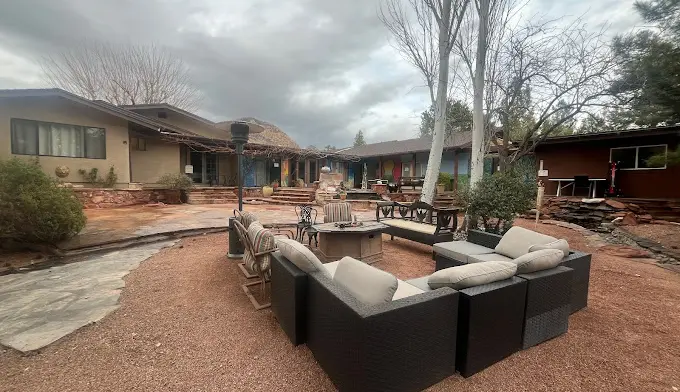
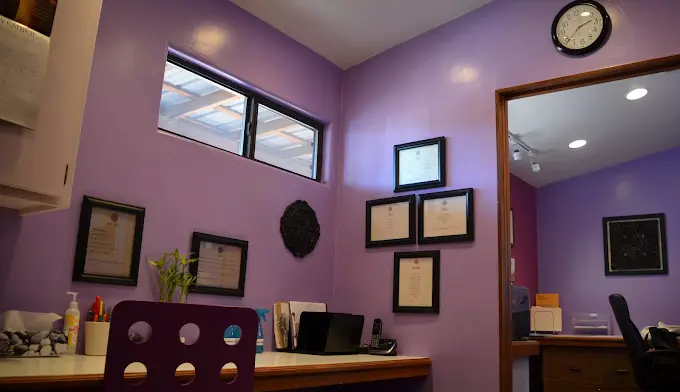
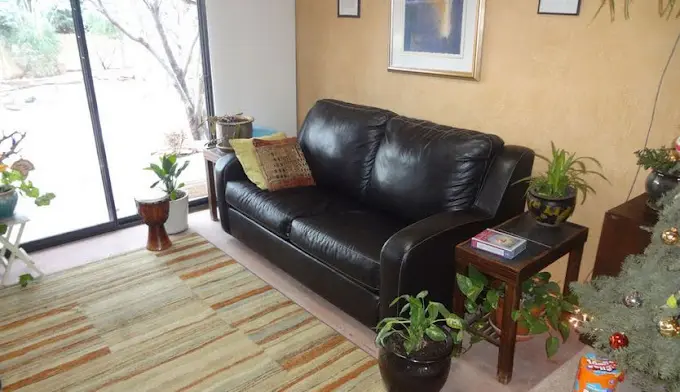
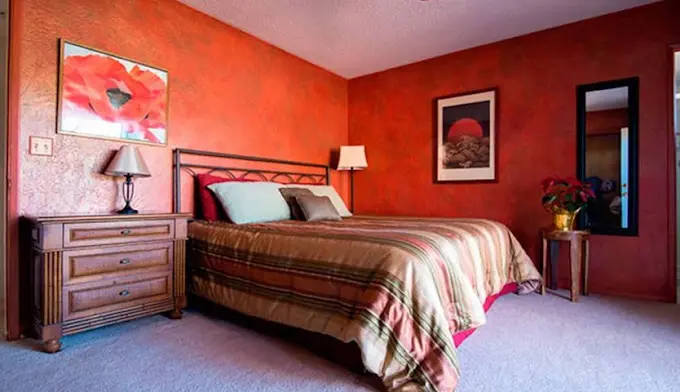
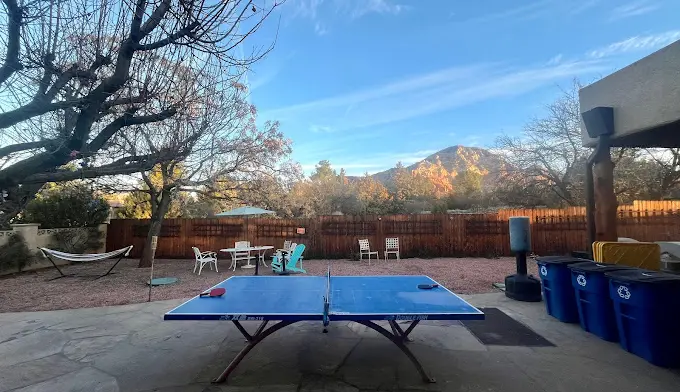






Accepted Insurance
Other Forms of Payment
Private insurance refers to any kind of healthcare coverage that isn't from the state or federal government. This includes individual and family plans offered by an employer or purchased from the Insurance Marketplace. Every plan will have different requirements and out of pocket costs so be sure to get the full details before you start treatment.
Self-pay involves paying for treatment out of your own pocket. You can use savings or credit, get a personal loan, or receive help from family and friends to fund your treatment. If you don't have insurance or your insurance plan doesn't cover a specific program, self-pay can help ensure you still get the care you need.
Addiction Treatments
Levels of Care
Residential treatment programs are those that offer housing and meals in addition to substance abuse treatment. Rehab facilities that offer residential treatment allow patients to focus solely on recovery, in an environment totally separate from their lives. Some rehab centers specialize in short-term residential treatment (a few days to a week or two), while others solely provide treatment on a long-term basis (several weeks to months). Some offer both, and tailor treatment to the patient's individual requirements.
Treatments
The goal of treatment for alcoholism is abstinence. Those with poor social support, poor motivation, or psychiatric disorders tend to relapse within a few years of treatment. For these people, success is measured by longer periods of abstinence, reduced use of alcohol, better health, and improved social functioning. Recovery and Maintenance are usually based on 12 step programs and AA meetings.
Drug rehab in Arizona is the process of treating individuals who are dependent on a particular addictive drug. Because addiction is complex, this treatment typically includes a variety of interventions that address the many physical and emotional issues involved.
A combined mental health and substance abuse rehab has the staff and resources available to handle individuals with both mental health and substance abuse issues. It can be challenging to determine where a specific symptom stems from (a mental health issue or an issue related to substance abuse), so mental health and substance abuse professionals are helpful in detangling symptoms and keeping treatment on track.
Opioid rehabs specialize in supporting those recovering from opioid addiction. They treat those suffering from addiction to illegal opioids like heroin, as well as prescription drugs like oxycodone. These centers typically combine both physical as well as mental and emotional support to help stop addiction. Physical support often includes medical detox and subsequent medical support (including medication), and mental support includes in-depth therapy to address the underlying causes of addiction.
Programs
Adult rehab programs include therapies tailored to each client's specific needs, goals, and recovery progress. They are tailored to the specific challenges adult clients may face, including family and work pressures and commitments. From inpatient and residential treatment to various levels of outpatient services, there are many options available. Some facilities also help adults work through co-occurring conditions, like anxiety, that can accompany addiction.
Recovery is most successful when clients feel accepted and validated by their peers and treatment providers. Facilities that offer LGBTQ-inclusive programming are committed to creating a safe space where everyone can grow and recover without fear of judgment or discrimination. They will have dedicated policies in place to create a safe and supportive environment that fosters free expression.
Serving in the military is both mentally and physically challenging, and can result in trauma that persists even after combat ends. Military programs are tailored to the specific and often complex needs of active duty personnel, veterans, and military families. Clients often access these programs through the U.S. Department of Veterans Affairs (VA).
Young adulthood can be an exciting, yet difficult, time of transition. Individuals in their late teens to mid-20s face unique stressors related to school, jobs, families, and social circles, which can lead to a rise in substance use. Rehab centers with dedicated young adult programs will include activities and amenities that cater to this age group, with an emphasis on specialized counseling, peer socialization, and ongoing aftercare.
Clinical Services
Creativity is inherently healing, and can help those in recovery express thoughts or feelings they might not otherwise be able to. Creative arts therapy can include music, poetry/writing, painting, sculpting, dance, theater, sandplay, and more. Unlike traditional art, the final product matters far less than the experience of creation and expression itself.
Also known as CBT, cognitive behavioral therapy in Arizona is one of the most common types of psychotherapy. It offers a structured method of counseling that effectively treats substance use disorder and dual diagnosis disorders.
Dialectical behavior therapy in Arizona focuses on acceptance of your reality and behaviors while also attempting to make changes in unhealthy behaviors. It has been shown to be effective for the treatment of anxiety, depression, PTSD, and substance use disorder.
Amenities
-
Yoga Studio
Staff & Accreditations
Staff

Lyle Murphy
Founder

Isaac Levin
Chief Administrator

John Camillieri
Program Director

Winnie Bunch, PMHNP
Medical Director

Kimberli Galloway, RN, BSN, BA
Director of Nursing

Nayeem Lokhandwala, LMFT
Clinical Director
Accreditations

State Licenses are permits issued by government agencies that allow rehab organizations to conduct business legally within a certain geographical area. Typically, the kind of program a rehab facility offers, along with its physical location, determines which licenses are required to operate legally.
State License: Arizona
License Number: BH4066
Contact Information
185 ROADRUNNER DRIVE
Sedona AZ, 86336


